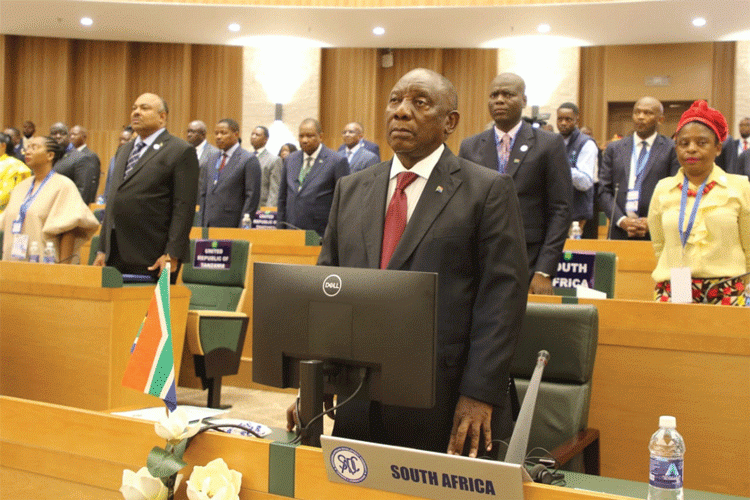
RWANDA says it is not involved in attacks on peacekeeping troops and civilians in the eastern Democratic Republic of Congo (DRC) amid claims by Sadc that it is fuelling conflict in the DRC.
However, analysts yesterday said if the volatile situation was not addressed urgently it would lead to the destabilisation of the whole region.
The accusations, made during the Sadc extraordinary summit held in Harare on Friday, have sparked a war of words between Rwanda and the regional bloc, raising fears the crisis could lead to a full-blown war in the Great Lakes region.
Rwanda’s Foreign Affairs ministry rejected the claims, insisting the Rwanda Defence Force (RDF) is solely focused on defending Rwanda’s borders and protecting its civilians.
“The Rwanda Defence Force does not target civilians and remains committed to safeguarding Rwanda’s sovereignty,” the statement read.
The summit, hosted by Zimbabwe in its capacity as the current Sadc chair condemned the M23 armed group and the RDF, accusing them of violating the ceasefire agreement brokered through the Luanda Process in July 2024.
Sadc expressed deep concern that the RDF’s alleged involvement in the attacks has worsened the security situation in eastern DRC, undermining peace and stability not only in the DRC but across the Sadc
region.
- Mr President, you missed the opportunity to be the veritable voice of conscience
- ED to commission new-look border post
- Zanu PF ready for congress
- EU slams Zim over delayed reforms
Keep Reading
President Emmerson Mnangagwa, who chaired the summit, warned that the crisis poses a significant threat to regional security.
“The ongoing violence in eastern DRC is not just a problem for the DRC; it is a threat to the entire Sadc region. If left unchecked, it could lead to a humanitarian catastrophe and further destabilise our member States,” Mnangagwa said in his closing
remarks.
Rwanda, however, has accused Sadc of exacerbating the conflict through its peacekeeping mission, SAMIDRC.
The east African country, however, argued that the Sadc Mission in the Democratic Republic of Congo (SAMIDRC), which supports the DRC government in its military operations against groups like the M23, has become a source of instability.
The statement alleged that SAMIDRC’s coalition partners, including the Burundian armed forces, the FDLR (Democratic Forces for the Liberation of Rwanda) and European mercenaries “are central to the conflict and should not be there because they are adding to the problems that already existed”.
It said SAMIDRC was invited by the DRC government, alleging that the mission’s activities have expanded beyond combating the M23 to targeting Rwanda itself.
Rwanda said it was committed to a peaceful resolution of the crisis and expressed support for a proposed joint summit of the East African Community and Sadc to discuss the way forward.
Political analyst Pardon Taodzera warned that the crisis in eastern DRC could have far-reaching consequences for the Sadc region.
“The conflict is no longer confined to the DRC; it is a regional crisis with the potential to destabilise neighbouring countries,” Taodzera said.
“The involvement of multiple armed groups, foreign mercenaries and regional forces has created a volatile situation that could easily spill into Sadc member States, particularly those sharing borders with the
DRC.”
Taodzera also highlighted the economic implications of the crisis.
“The instability in eastern DRC is disrupting trade routes and economic activities across the region. If the conflict continues to escalate, it could lead to a refugee crisis, putting additional strain on countries like Zambia, Zimbabwe and Tanzania,” he said.










